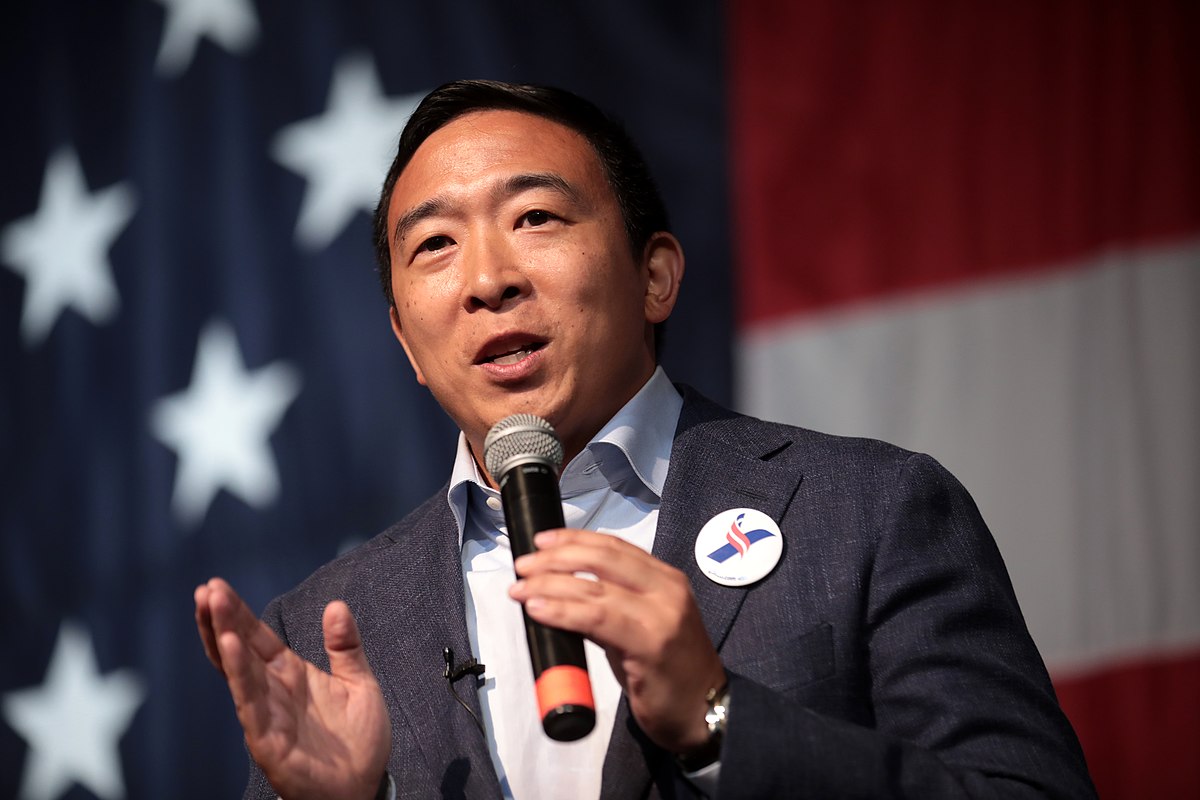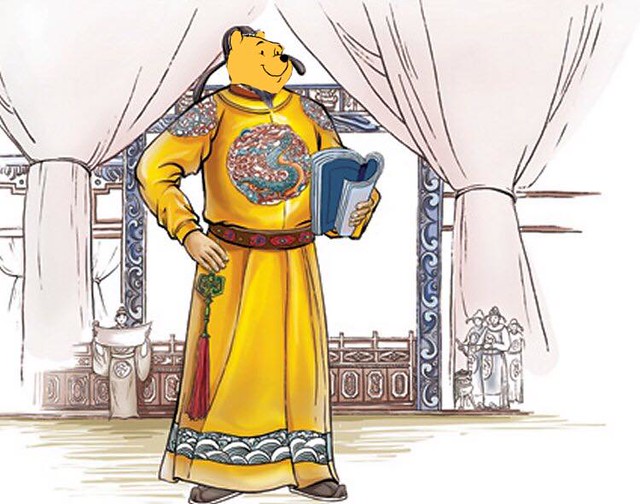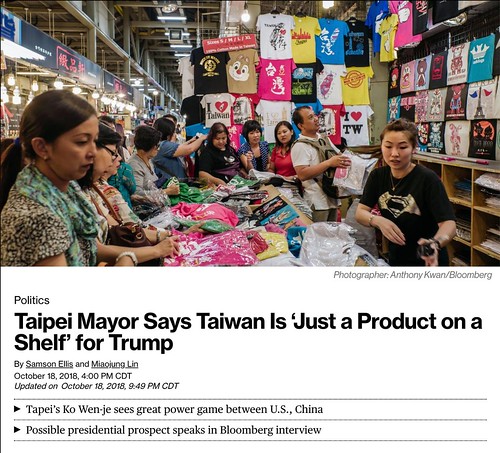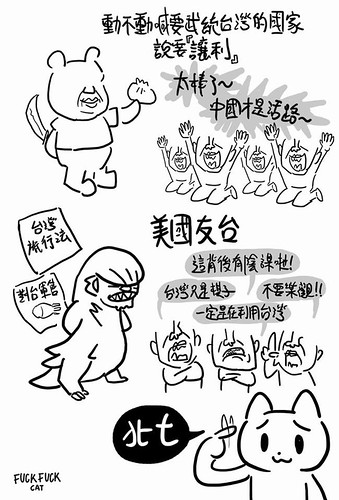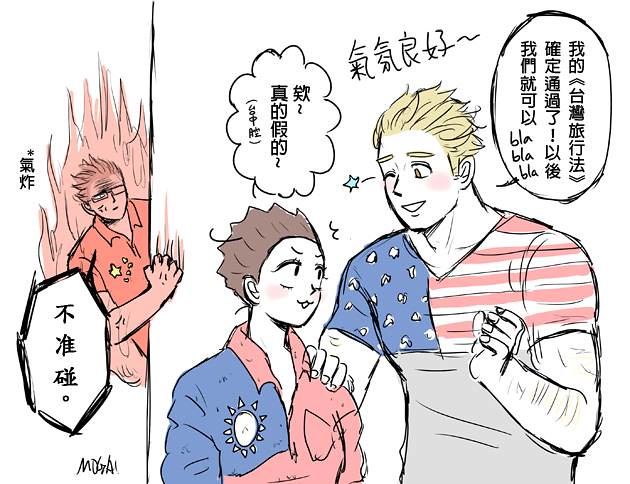This week, Republican congressional representative and rotted meat carcass Ted Yoho did two things.
First, he announced the introduction of a package that would explicitly allow the US to use military force if China invades Taiwan. We should all support this: while obviously starting a war in Taiwan’s name is a terrible idea, a stronger commitment to defensive assistance if China were to invade is crucial. Taiwan wants it, defense is not the same as offense, and Taiwan can already govern and defend itself - it needs backup, not a savior.
Second, he accosted Democrat and peer Alexandra Ocasio-Cortez, calling her “out of [her] freaking mind”, “disgusting” and “a fucking bitch”. Why? Because he’s a flaming garbage heap, but also because AOC attributed the spike in crime in New York to corresponding spikes in unemployment and homelessness due to the CCP virus, which the US has responded to so badly that not focusing on the fact that the CCP is to blame for the pandemic is actually a reasonable argument now.
Earlier this month, he helped get the Hong Kong Autonomy Act through Congress.
This disconnect provides yet another reminder that many of our “allies” on Taiwan and Hong Kong issues are not necessarily good people, and that we should not excuse their being terrible people just because we agree with them on a few issues.
This is a deceptively difficult minefield to navigate. Taiwan and Hong Kong should be bipartisan issues, one of the few things we can actually work with conservatives on. Taiwan has historically been supported more by Republicans than Democrats, and although that is finally changing, the fact remains that we still need to work with Republicans to get important legislation passed.
But the flipside of bipartisanship on Taiwan is that we have to plaster on a smile and work with utter jackbuckets like Ted Yoho. Frankly, they’re all pretty terrible, it’s just Teddy’s week to shine. I know there are those who would rather ignore the fact that pretty much every Republican supporter of Taiwan and Hong Kong who holds elected office is a horrible person — they’d choose Taiwan every time. That doesn’t exactly work; it excuses their otherwise awful behavior and puts voters like me in a bind when we want to vote for the most pro-Taiwan and Hong Kong candidates, but can’t because they’re unacceptable in every other way. It puts advocates in tough positions because it means pretending to be nice to these human dumpsters. It tarnishes the images of activists — how much flak have Joshua Wong and Nathan Law caught for posing for smiley photos, invariably filled with men, rarely a woman in sight, with walking trash kraken?
It’s easy to say “we have different values but we can come together on this”. It’s easy to ignore the time Yoho said “annyounghaseyo” to President Tsai because...reasons. It’s harder to justify “coming together” on Taiwan with a man who just called AOC a “fucking bitch”. I’m sorry, but at that point, are you not simply justifying ignoring blatant misogyny?
There are also those who think we shouldn’t work with them at all and find another way. That’d be lovely, but it’s also not currently possible if you actually take Taiwan’s defense seriously. Democrats look like they are set to potentially draft a China platform that keeps support of a cross-strait policy “consistent with the needs and best interests of the people of Taiwan”. It’s likely this will pass, as it was language used in 2008, 2012 and up through 2016. While it’s unclear how useful this is, seeing as the Obama administration wasn’t exactly Taiwan’s most helpful friend, this is still good news — it means they aren’t taking a “total opposition” stance to officials under Trump who have supported Taiwan more than their Obama-era forerunners. Their voting record of late — in solidarity with Republicans on Taiwan and Hong Kong — and some statements by Joe Biden, have reflected a trend in this direction. But honestly, we’re not there yet, and we can’t afford to end bipartisanship on Taiwan and Hong Kong.
To add to that, it’s not like the right has the market cornered on misogyny and racism (yes, Yoho’s comments, given the context of the spike in crime, are both sexist and racist). I’ve met plenty of centrists and even self-proclaimed lefties who honestly aren’t much better. From ‘our side’ I’ve heard everything from “BLM should take responsibility for the crime wave in Chicago” (what?) to wanting to protest in front of AIT for Taiwan while making deeply sexist comments about Hillary Clinton. The number of Democrats and self-proclaimed liberals in Taiwan and the US who are accused of being inappropriate with women honestly rivals the behavior of Republicans. Saying we shouldn’t work with the right for these reasons may be principled, to an extent, but it ignores how much of it comes from our own side.
I’ve thought for awhile that there is no such thing as ‘natural allies’, because people on ‘our side’ are just as capable of being toxic jerks. The only way to continue bipartisan efforts on Taiwan is to think of allies on any given issue as people who agree with you on that particular issue and are not otherwise human dumpsters.
Unfortunately, Ted Yoho, as with others, has shown that he is in fact a human dumpster. People have been burned by this before, thinking Trump could be good for Taiwan and Hong Kong only to find that his ‘challenge’ to China is more of an inconsistent mess.
Can we really consider a party that supports a president that called concentration camps a “good idea” an ally? Can we really smile and shake hands with Ted Yoho while he calls AOC a “fucking bitch” out the other side of his mouth?
If we don’t, how are we going to realistically make sure Taiwan has the backup it needs in the face of a potential invasion that is a very real threat? Raising fists and taking to the streets didn’t work for Hong Kong and it won’t stop an amphibious invasion of Taiwan — and letting China win is arguably worse than defending Taiwan for real. Of course, we should reach out to liberals and the left, though I’ve found that the far left is so thickly populated with tankies (“Taiwan is evil because they are run by the Nationalists, who are evil bad capitalists grr” - don’t even know where to start with this) that they’re hard to talk to about Taiwan. And honestly, even if and when we succeed, Taiwan is still better off with bipartisan support rather than having its assurance of defensive assistance tied to the whims of whomever is in office.
I don’t have an answer to that, but I am personally not inclined to think of people like Ted Yoho as allies. As a woman, a congressional representative calling a female colleague a “fucking bitch” and then trying to justify it by saying he’s a family man affects me, because it affects the discourse of what’s acceptable to say about people of my gender. If you do think of him as an ally, please consider exactly what behavior you are excusing and whether or not that behavior affects you.


